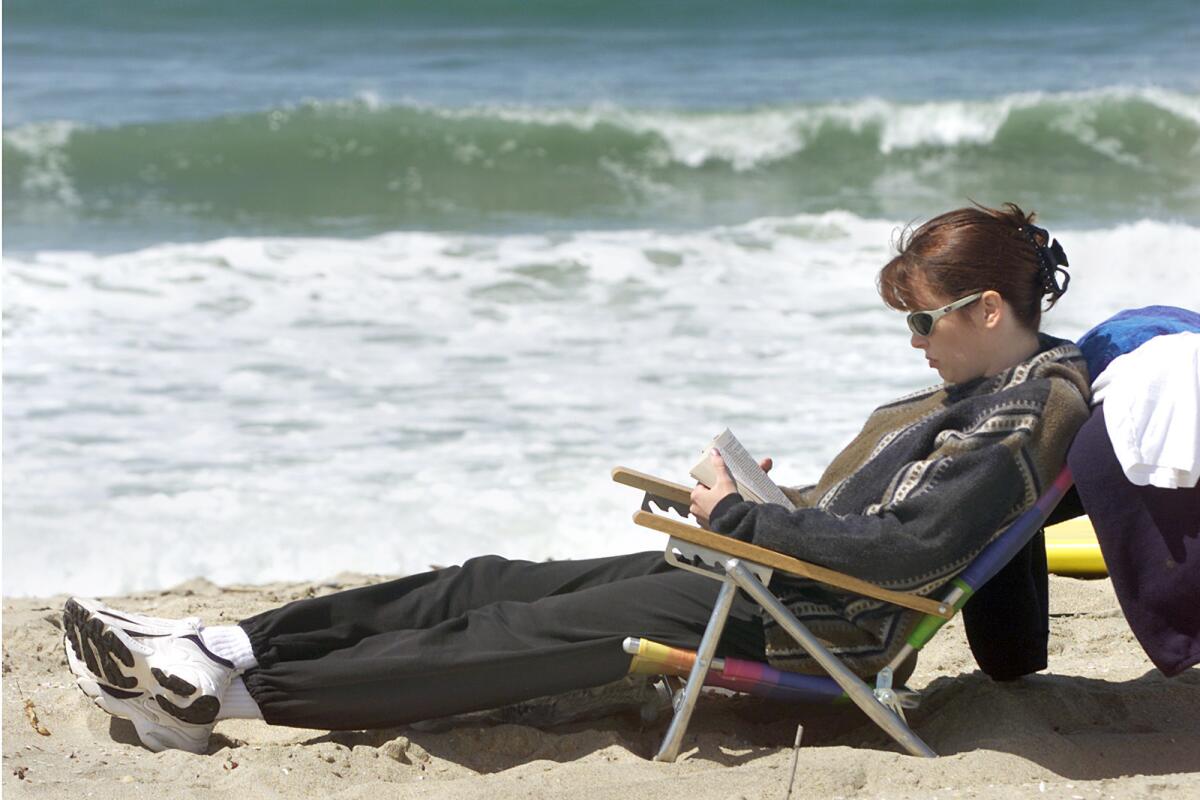Scott Cheshire on the novel of ‘not knowing’

- Share via
Scott Cheshire’s Electric Literature essay “The Fundamentalist Reader — On Plotless Novels and the Meaning of Life” reads like an installment in a conversation I’ve been having with myself.
Why, Cheshire wonders, is he drawn to books such as, say, Jenny Offill’s recent “Dept. of Speculation,” which he describes as “[l]ots of white space, no clear ‘plot,’ it read like a narrator thinking out loud, unaware I could hear every word”? The answer, he suggests, is that for him, writing is (to borrow a phrase from Don De Lillo) “a concentrated form of thinking,” which is how Cheshire conceptualizes reading as well.
He’s right, of course, on both counts: As Joan Didion has observed, “I write entirely to find out what I’m thinking, what I’m looking at, what I see and what it means. What I want and what I fear.” This is why I write also, and why I read, to confront something I don’t know, or don’t know I know, to embrace, or tolerate, what Offill calls “this not-knowing,” which is, of course, the essence of literature.
To make the point, Cheshire focuses on three novels: DeLillo’s “The Names,” Marilynne Robinson’s “Gilead” and Max Frisch’s “Montauk,” which he contrasts with the experience of his upbringing in a Jehovah’s Witness household, where everything had been (on its own terms, anyway) revealed. Literature, then, offered a kind of antidote, a way of deepening, of complicating, the world.
“All of these books,” Cheshire writes of the novels that rewired his thinking, “are intimate, and share a near shapeless close-to-the-bone rawness you don’t find very often in novels. But they also read like writers in search of self-knowledge, in search of meaning. They are books that do not yet ‘know.’”
This is not, by the way, a knock on faith, although Cheshire has moved away from the certainties of his childhood. Rather, it is an insistence on a different kind of faith, in which we ask ourselves questions that don’t have any answers, and turn away from the false comfort of fairy tales.
Cheshire quotes Frisch on writing: “What shocks me is rather the discovery that I have been concealing my life from myself.” Then he adds, “I read for that same shock. I read to undo what I think I know, and it’s a lifelong process.”
The corollary is that in undergoing such a shock, again and again, we are somehow made more authentic, brought more closely into contact with the elusive, open-endedness of life.
“The best ones,” Cheshire writes, “the books that last, lay for us a path toward some personal epiphany.” Yes, yes, I want to say, that’s it precisely, although it’s also the case that the older I get, the more I read and write, the less I need (or want) to know.
twitter: @davidulin
More to Read
Sign up for our Book Club newsletter
Get the latest news, events and more from the Los Angeles Times Book Club, and help us get L.A. reading and talking.
You may occasionally receive promotional content from the Los Angeles Times.











